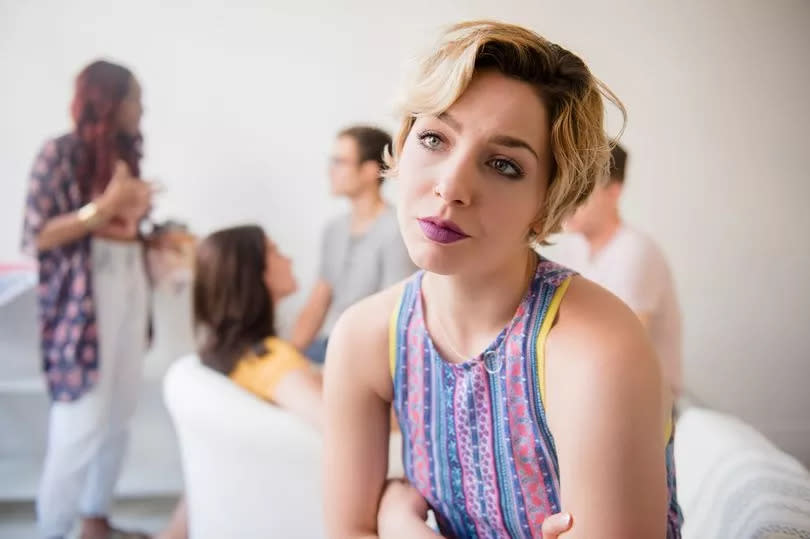Signs you may have common mental health disorder and what to do about it

It's completely normal to feel a bit nervous about social situations. However, for those with social anxiety, these worries can become overwhelming - not just during an event, but before and after as well.
Social anxiety, also known as social phobia, is the most common of all the anxiety disorders. It typically develops during the teenage years, according to the NHS. While some people may find their condition improves as they age, many continue to struggle into adulthood without treatment.
This form of anxiety can prevent individuals from doing things they enjoy, such as attending events like weddings or work nights out. It could also stop someone from eating out or pursuing hobbies that involve other people.
It can impact essential tasks like getting to work or college, or attending appointments where interaction with others is necessary. The thought of going to unfamiliar places or being around unfamiliar people can also be daunting, reports the Mirror.
Recognising the signs and symptoms of social anxiety is the first step towards breaking free from these thoughts and regaining control of your life. Below, we provide information on what to look out for and what seeking help might entail.
What are the signs of social anxiety?
If you're experiencing symptoms, it's crucial to seek help. The NHS lists typical signs and symptoms that might indicate you have social anxiety:
Worry about everyday activities, such as meeting strangers, starting conversations, speaking on the phone, working or shopping
Avoid or worry a lot about social activities, such as group conversations, eating with company and parties
Always worry about doing something you think is embarrassing, such as blushing, sweating or appearing incompetent
Find it difficult to do things when others are watching – you may feel like you're being watched and judged all the time
Fear being criticised, avoid eye contact or have low self-esteem
Often have symptoms like feeling sick, sweating, trembling or a pounding heartbeat (palpitations)
Have panic attacks, where you have an overwhelming sense of fear and anxiety, usually only for a few minutes
Many individuals suffering from social anxiety also grapple with other mental health conditions, such as depression, generalised anxiety disorder or panic disorder. The symptoms can vary slightly in children.
If you're concerned about your child, here are some signs that they might be dealing with social anxiety:
Crying or getting upset more often than usual
Getting angry a lot
Avoiding interaction with other children and adults
Fear of going to school or taking part in classroom activities, school performances and social events
Not asking for help at school
Being very reliant on their parents or carer
What should I expect after discussing my social anxiety with my GP?
If you suspect you're suffering from social anxiety and it's significantly affecting your life, it's advisable to consult a GP. While seeking help can be challenging, GPs understand that many people struggle with social anxiety and will strive to make you comfortable.
They'll inquire about your feelings, behaviours, and symptoms to understand your anxiety in social situations better. If they believe you may have social anxiety, they'll refer you to a mental health specialist for a comprehensive assessment and discussion of treatment options.
You also have the option to self-refer to an NHS talking therapies service without needing a GP referral.
What treatment options exist for social anxiety?
People with social anxiety don't have to 'just get on with it'. Several treatments can help manage the condition.
The primary options typically include cognitive behavioural therapy (CBT) with a therapist who assists you in identifying and altering negative thought patterns and behaviours. This can be conducted one-on-one with a therapist, in a group setting, or with your parents/carers.
Guided self-help, which involves working through a CBT-based workbook or online course with regular support from a therapist, can also be beneficial. Antidepressant medicines can help but these are usually not used to treat children and young people.
CBT is generally considered the best treatment, but other treatments may help if it does not work or you do not want to try it. Some people need to try a combination of treatments to find the best solution for them.
There are several charities, support groups and online forums for people with social anxiety and other anxiety disorders, including:
HealthUnlocked anxiety forum run by Anxiety Support
Mind and YoungMinds

 Yahoo News
Yahoo News 
